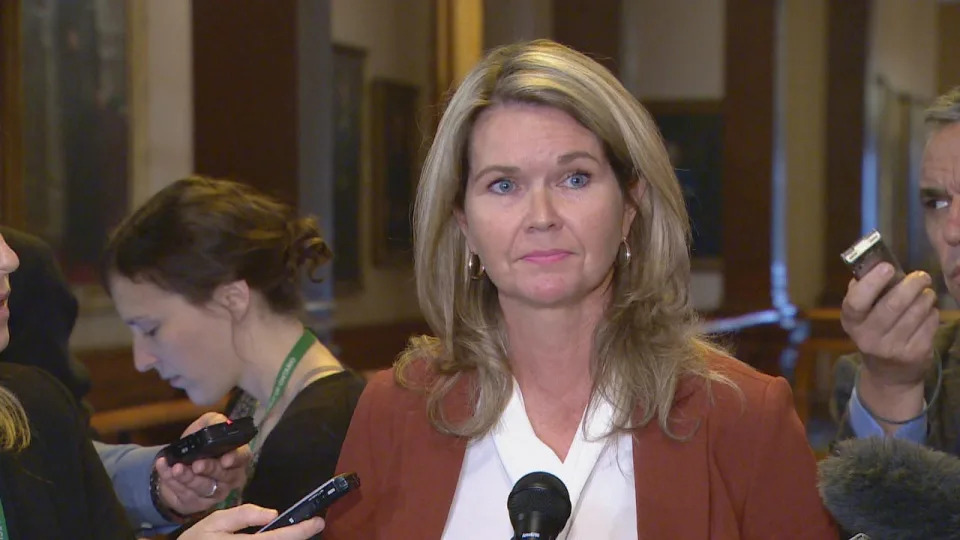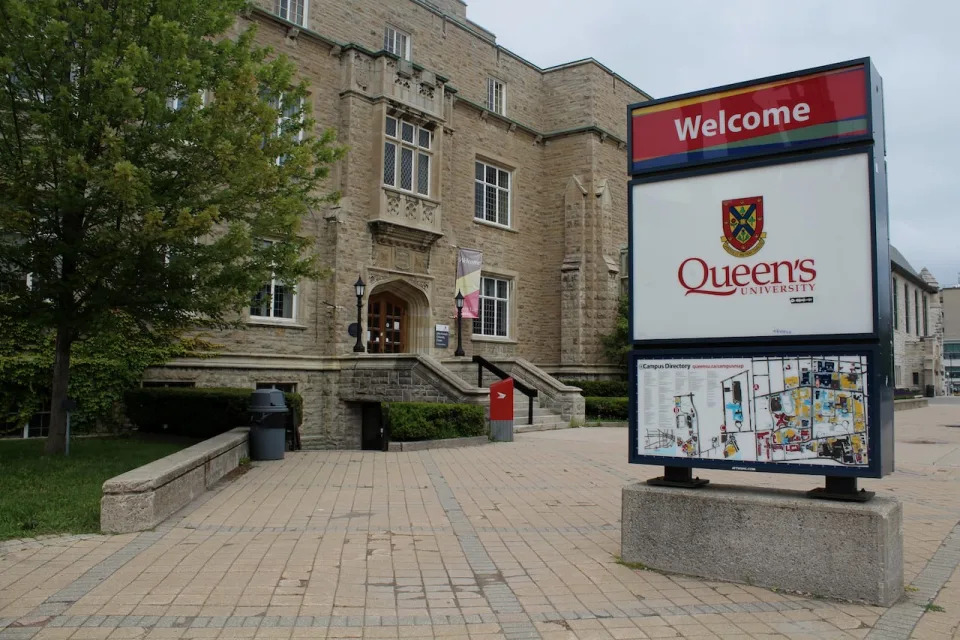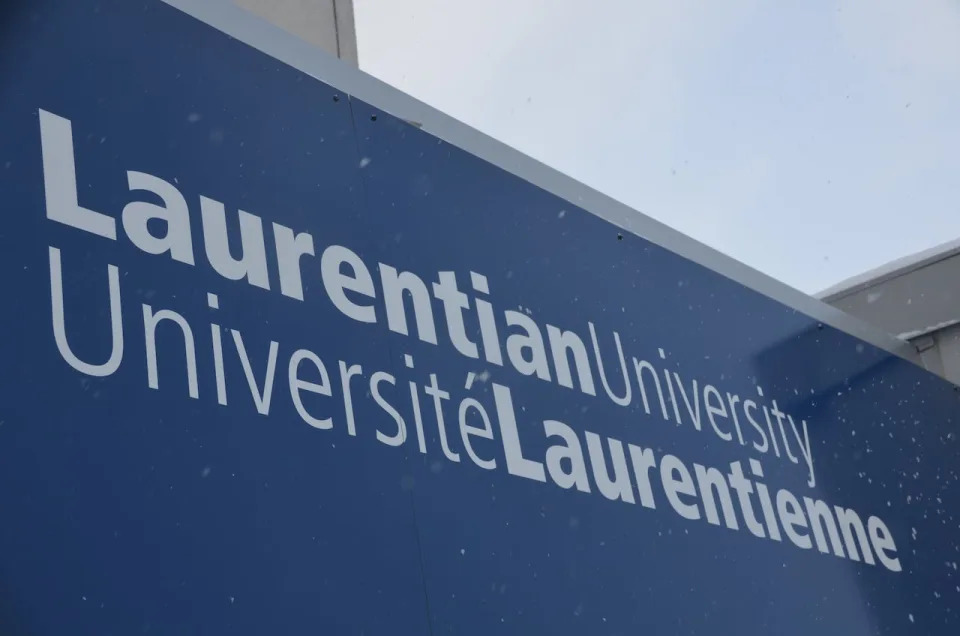CBC
Mon, November 20, 2023

The Ontario government should end its freeze on tuition fees and increase per-student funding to its universities and colleges, says an expert panel appointed by the government. (Evan Mitsui/CBC - image credit)
When Premier Doug Ford's PCs appointed a panel of experts to look into the financial situation of Ontario's colleges and universities, they didn't seem to expect the panel would blame the government for being a big part of the problem.
In its report to the government, released last week, the panel sounds the alarm about Ontario's post-secondary sector, saying its financial sustainability is "currently at serious risk."
The report points to the province's long-running freeze on per-student funding to universities and colleges, the Ford government's 2019 move to scrap a program subsidizing free tuition for low- and middle-income students (while branding it as a tuition cut), plus the impact of inflation.
"As time goes on, this situation is ever more likely to pose a significant threat to the financial sustainability of a major part of the province's post-secondary sector," the panel said.
Among the solutions, the panel proposed a five per cent tuition hike. That recommendation may have gotten the most attention. But the first recommendation on the panel's list: a 10 per cent boost in government funding.
The government's response in a nutshell is universities and colleges need to be more efficient.

Ontario's Minister of Colleges and Universities, Jill Dunlop.
'When our government invests over $5 billion annually of taxpayer dollars in operating funds for our colleges and universities, we need to ensure that that money is being spent wisely,' said Ontario's minister of colleges and universities, Jill Dunlop. (CBC)
"It's my expectation that we will work with post-secondary institutions to create greater efficiencies in operations, program offerings and sustainability of the sector," Colleges and Universities Minister Jill Dunlop said in a statement on the report's release.
"Before agreeing to any tuition increases however, we need to ensure that colleges and universities are taking the necessary steps to ensure that they are operating as efficiently as possible."
Ontario pays 57% of what other provinces do per student
The next day, Dunlop sent a similar message in question period. She told the legislature that universities and colleges "need to review their spending and operating practices" before she'll consider any increase in funding.
"When our government invests over $5 billion annually of taxpayer dollars in operating funds for our colleges and universities, we need to ensure that that money is being spent wisely," Dunlop said.
The panel's report compiles some evidence that Ontario's post-secondary institutions are spending that money wisely.
Salary and benefit costs per full-time student in Ontario's universities are "lower than in almost every other province," says the report.

Graduates from the University of Toronto take part in a convocation ceremony on Jun. 9, 2022. These ceremonies, which take place throughout the month of June, are the first in-person convocations since 2019 when gatherings where restricted due to the COVID-19 pandemic.
(Evan Mitsui/CBC)
The report says provinces outside Ontario provide universities an average of $20,772 in funding per full-time-equivalent student. Ontario's annual funding is little more than half of that: $11,471.
"Ontario is a long, long way below what's being spent in the rest of the provinces," said Alex Usher, who leads the post-secondary consulting firm Higher Education Strategy Associates.
$4B of savings can't be found
"We want a world class system, but we don't want to pay for it," Usher said in an interview.
His analysis is that the government created the panel to give it justification for ending the tuition freeze, not to get advice that it should boost provincial funding.
Usher says the government would need to spend $4 billion annually to meet the national average for provincial funding to universities, and says there's no way that can be found through operating more efficiently.
"There isn't $4 billion worth of savings in the system," he said. "Our institutions churn out graduates much more cheaply in terms of public money than anybody else. I don't think there's that many more efficiencies to get."
The report says provinces outside Ontario provide universities an average of $20,772 in funding per full-time-equivalent student. Ontario's annual funding is little more than half of that: $11,471.
"Ontario is a long, long way below what's being spent in the rest of the provinces," said Alex Usher, who leads the post-secondary consulting firm Higher Education Strategy Associates.
$4B of savings can't be found
"We want a world class system, but we don't want to pay for it," Usher said in an interview.
His analysis is that the government created the panel to give it justification for ending the tuition freeze, not to get advice that it should boost provincial funding.
Usher says the government would need to spend $4 billion annually to meet the national average for provincial funding to universities, and says there's no way that can be found through operating more efficiently.
"There isn't $4 billion worth of savings in the system," he said. "Our institutions churn out graduates much more cheaply in terms of public money than anybody else. I don't think there's that many more efficiencies to get."

James Rush is the vice-president of academic and provost at the University of Waterloo. (Carmen Groleau/CBC)
The panel does make a few recommendations on efficiencies, such as reducing spending on administration and IT services, and encouraging smaller universities to share delivery of courses.
Those are savings that could at a stretch reach into the hundreds of millions of dollars, but not the billions, according to senior officials in the university sector.
Universities need 'large bump' in operating grants: Waterloo VP
James Rush, vice-president of academic and provost at the University of Waterloo, says Ontario needs to fix the balance between what the government contributes financially, what students pay and what universities are expected to do in finding efficiencies.
"It is not sustainable that that mix can be so far out of balance," Rush told CBC Radio's Morning Edition in Kitchener-Waterloo.
"We really need to have a large bump in the operating grant that's provided to universities in Ontario," Rush said. "This isn't really asking for anything too extraordinary."
He said the tuition cut and freeze and the provincial funding freeze have put "a lot of constraints" on Waterloo. The university now faces a $15-million deficit this year.

The John Deutsch University Centre in the heart of the Queen's University campus in Kingston, Ont., photographed on Aug. 1, 2021.
The province’s freeze on per-student funding to universities and colleges, the Ford government’s 2019 cut and subsequent freeze of tuition fees, plus the impact of inflation have combined to put the financial sustainability of Ontario's post-secondary institutions at 'serious risk,' says the panel report. (John Last/CBC)
"There have been budget cuts, holdbacks, constraints or reallocation of resources every year for the past five years at the University of Waterloo to buffer this," said Rush.
It's a similar story at the much smaller Nipissing University in North Bay.
"We have been working on cost efficiencies for more than 10 years and probably, to be fair, have cut too many staff members," said Nipissing's president and vice-chancellor Kevin Wamsley.
"We've done everything in our power to manage efficiencies and to make sure we're providing the best quality education possible," Wamsley told CBC Radio's As It Happens. "Something needs to change now because the system is in trouble."
Some universities reluctant to talk
Beyond Waterloo and Nipissing, senior officials at several other universities around the province seem reluctant to speak about the funding crunch.
CBC reporters and producers also requested interviews with university administrators at Queen's, McMaster, Toronto Metropolitan and York, all of which either declined, said no one was available, or didn't respond.

Laurentian University in Sudbury declared insolvency in 2021 and filed for creditor protection. (Erik White/CBC)
The umbrella Council of Ontario Universities said its president and CEO Steve Orsini was unavailable for interviews either last week or this week as his schedule was fully booked.
"Ontario universities are urgently calling on the province to immediately end the tuition freeze and increase operating funds to the sector to ensure students can continue to count on the programs and services they rely on and deserve," Orsini said in a statement.
The government muzzled the panelists from speaking about the rationale behind their recommendations. The panel's chair told CBC Toronto its media protocol allowed him to speak only about the "operations of the panel," such as its meetings and process.
The panel was created in response to the insolvency of Laurentian University in Sudbury.
Usher says the financial state of Ontario's university sector is even more dire than the report suggests and that unless the province improves funding, he would not be surprised to see another insolvency.
The panel's report lays out how the domestic tuition and provincial funding freezes prompted Ontario's post-secondary institutions to ramp up their recruitment of international students.
"The choice the government has given institutions is between taking domestic students at $8,000 a head or taking international students at $44,000 a head," said Usher. "Given those incentives, how do we think universities are going to react?"
No comments:
Post a Comment